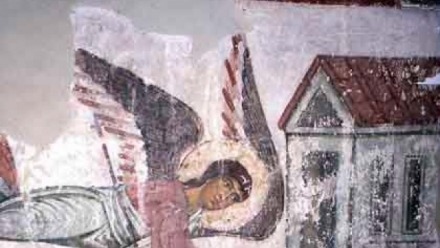Prophetic dreams and how to bring down an emperor in Maximus the Confessor

Presented as part of the Centre for Classical Studies Seminar Series
Maximus the Confessor (c. 580‐662) considered dreams to be involuntary. He used this position to defend himself against the charge of treason at his trial in Constantinople in 655. The charge was based on an allegation that Maximus had a subversive dream predicting the triumph of a usurper, Gregory the exarch of North Africa. We will examine how Maximus’ theory on dreams and their involuntary status evolved from his signature theory, the gnomic will. This can be related to a much older distinction, that posed by Aristotle in Nicomachean Ethics, between “things that are up to us” (that is, vices and virtues) and “things that are not up to us”. We find that Maximus does not exclude the possibility of mantic dreaming, but relegated it to “things that are not up to us”, and placed it in the realm of divine providence, as defined by the Christian philosopher Nemesius of Emesa.
Bronwen Neil is Professor of Ancient History at Macquarie University, Sydney. She holds degrees from University of Queensland, Durham University and Australian Catholic University, and is currently an ARC Future Fellow, on a project entitled Dreams, Prophecy and Violence from Early Christianity to Early Islam. Other research interests and current projects include late-antique epistolography, and an ARC Discovery Project on Memories of Utopia: Destroying the Past to Create the Future.
This seminar is free and all are welcome.
Date & time
Thu 03 Aug 2017, 5.15–6.30pm
Location
Milgate Room, 1st Floor, A.D. Hope Bldg 14, ANU
Speakers
Prof Bronwen Neil, ANU Visiting Fellow








